
We partner with EconoxLaos to support the Lao Youth in engaging in biodiversity conservation in Laos!
May 3, 2024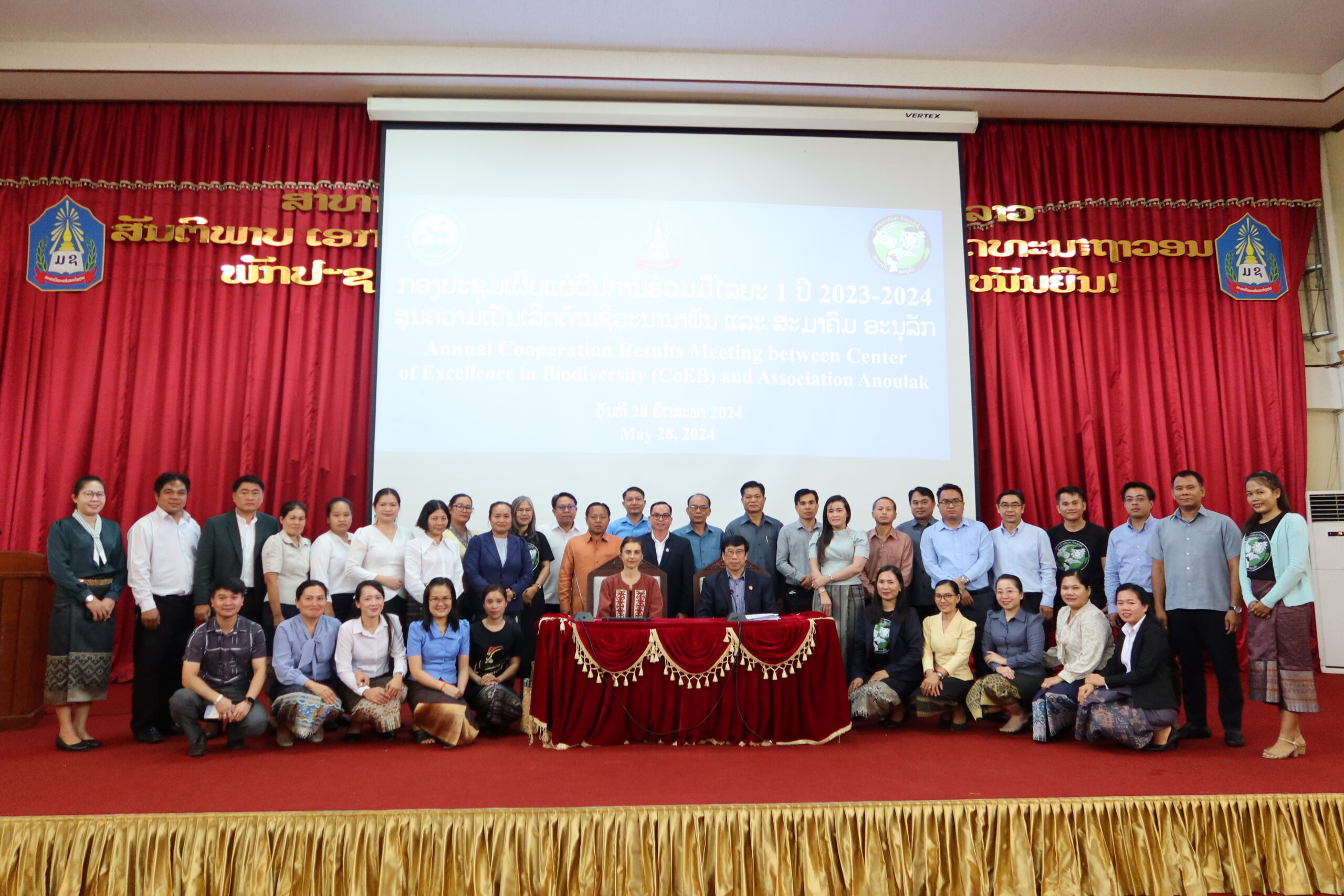
We convene at the National University of Laos to report on one year of partnership!
June 1, 2024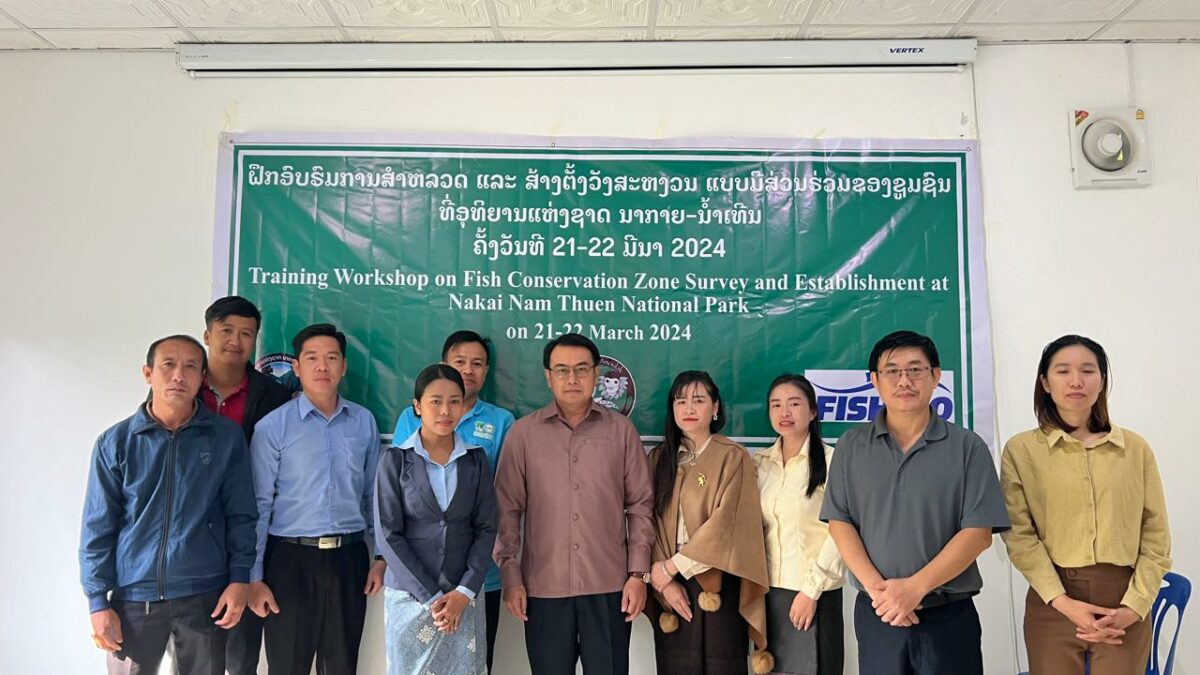
In March 2024, we supported FISHBIO in implementing training for the Nakai-Nam Theun National Park staff, local partners, and villagers on setting up and managing Fish Conservation Zones. Establishing and monitoring community-based freshwater Fish Conservation Zones is key to protecting aquatic species, including endemic and threatened fish species, while supporting fishing livelihoods and food security.
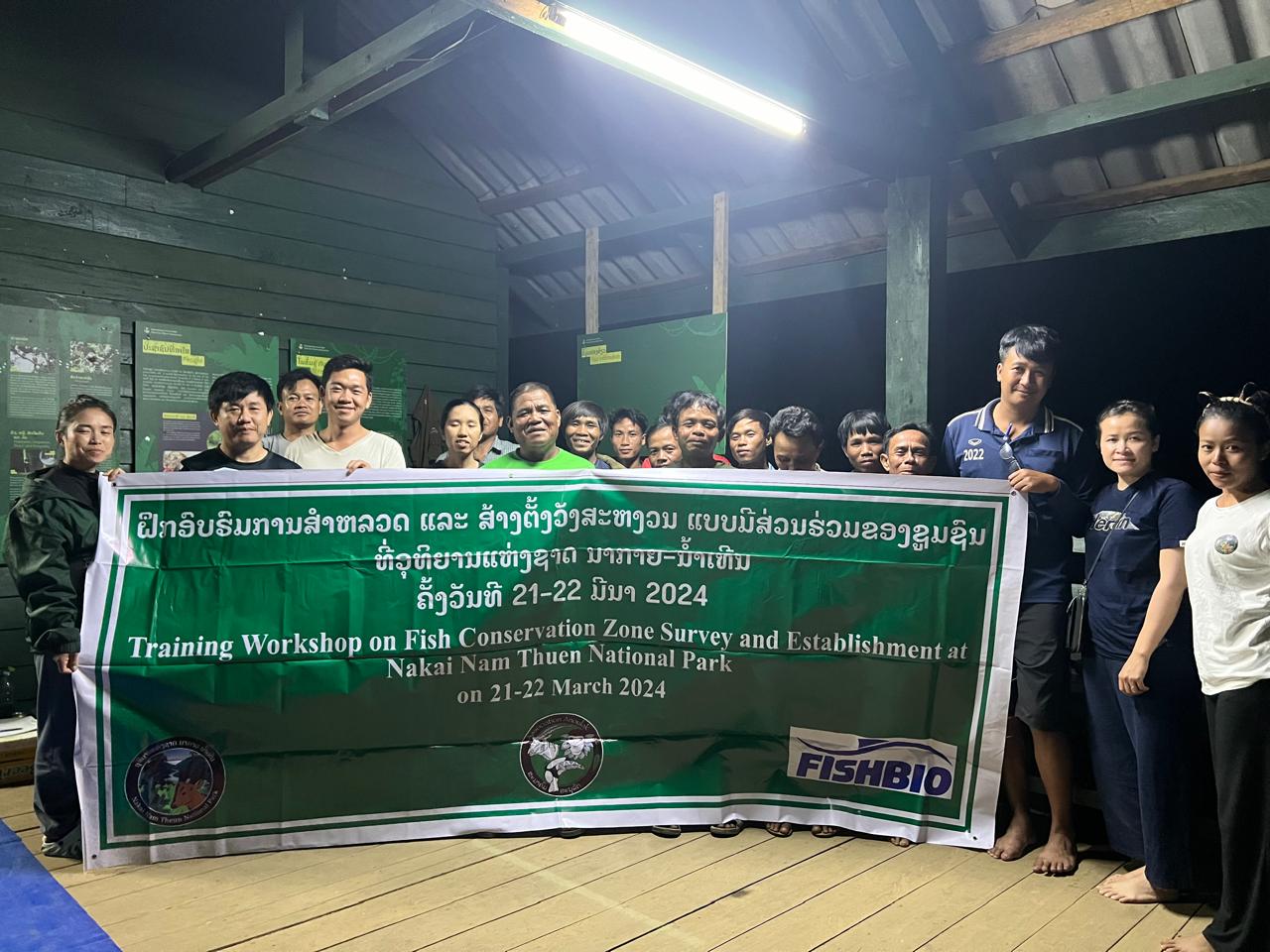
Trainees, including villagers communities during the practical training in the field
This training is a follow-up to our collaborative project implemented in 2022-2023 with FISHBIO to research the distribution and threats on the Endangered Luciocyprinus striolatus (Paa Kang) in Nakai – Nam Theun National Park, Khammouan Province, Lao PDR.
As part of this pilot project the main threats identified on the population of Luciocypronus striolatus in Nakai-Nam Theun National Park are:
• Fishing of the species (as a target species or by-catch) by local villagers for subsistence food and/or local trade
• Depletion of prays of Luciocyprinus striolatus as a result of over-fishing and unregulated fishing by local communities for subsistence food and/or local trade
• Catch-and-Release tourism attraction and promotion within the national park (with no prior impact assessment and management plan)
• Seasonal droughts
• A lack of awareness on the species’ conservation value by local communities and local authorities
• A lack of conservation plan for the species for the national park
Luciocyprinus striolatus is under threat at all locations where it has been confirmed to occur in Laos: Nam Pak in Oudomxay Province, Xay Champhone in Bolikhamxay Province and Nakai-Nam Theun National Park in Khammouan Province. However, Nakai-Nam Theun National Park represents the best location across the world for the long-term conservation of the species.
Based on this pilot project, it was recommended to establish Fish Conservation Zones in Nakai-Nam Theun National Park to protect the population of L. striolatus as well as other endemic and threatened species occurring in the national park such as Tor alter, Scaphongathops theunensis, and Poropuntius carinatus.
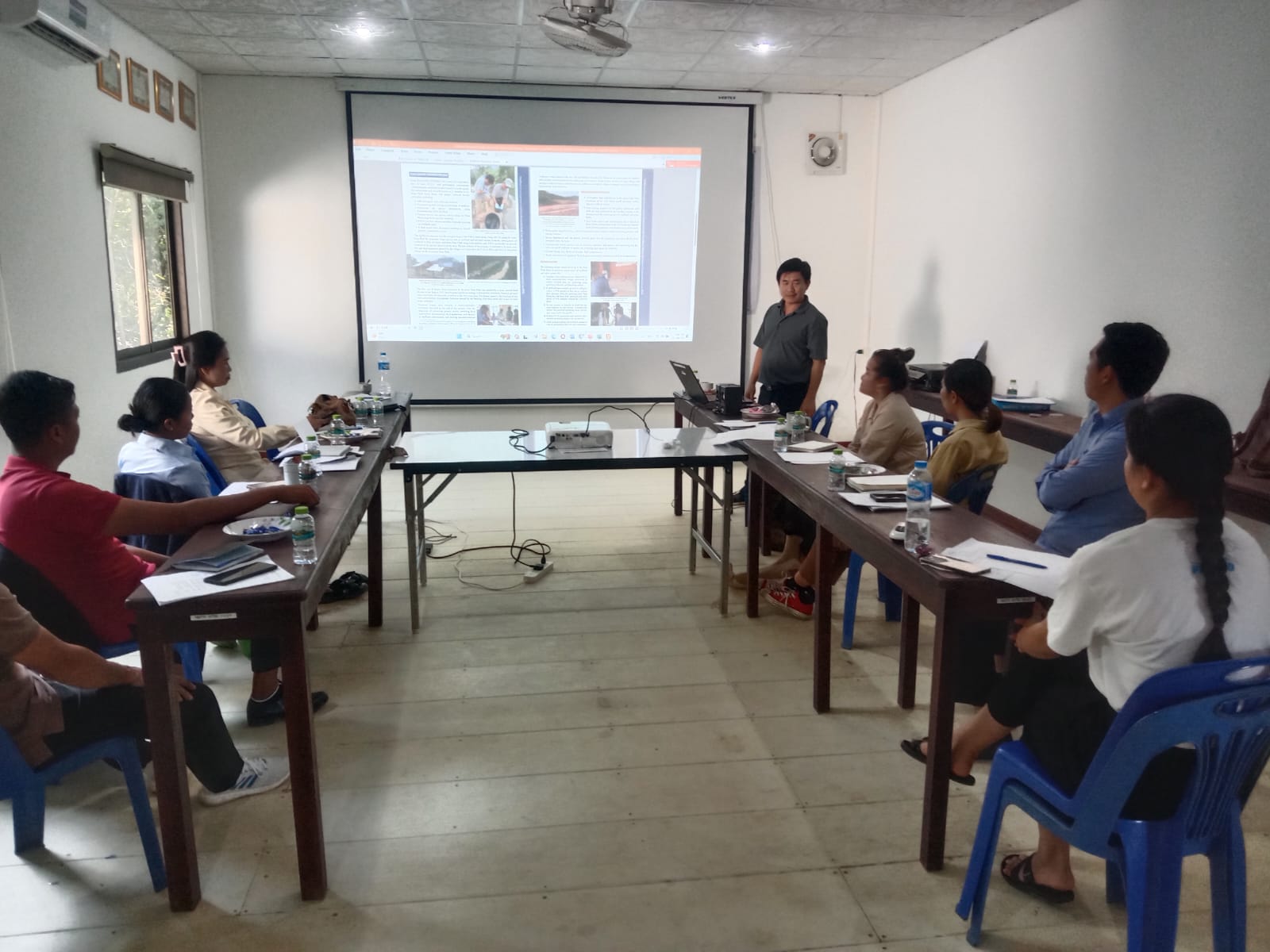
Mr. Sinsamouth providing theoretical technical training at the Nakai-Nam Theun National Park office
The objectives of this training were (1) to share experiences and results from 2022-2023, conservation awareness to local decision-makers and other relevant sectors; (2) to provide technical training on establishing community Fish Conservation Zones (procedure and technical management); and (3) to demonstrate a pilot FCZs in the field.
FISHBIO director Mr. Sinsamout Ounboundisane and assistant Mr. Sisongkham Kodsananxay implemented the training. Nine trainees from the national park staff, district partners, and village cluster representatives received theoretical technical training at the Nakai-Nam Theun National Park office, as well as practical training in the field.
We hope this capacity building training will lead to the national park in ensuring fish conservation with notably the establishment of Fish Conservation Zones.
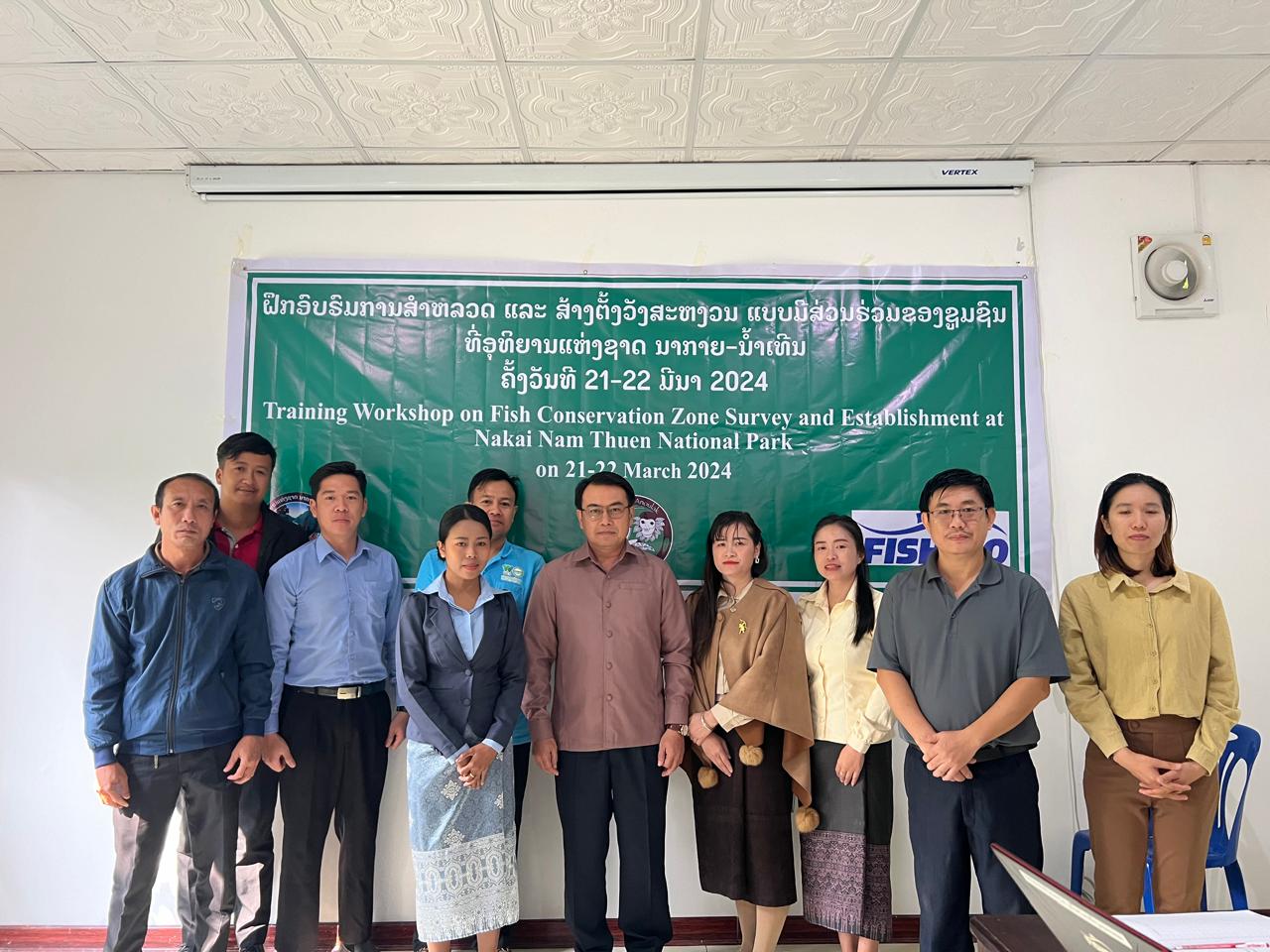
Trainers and trainees participants
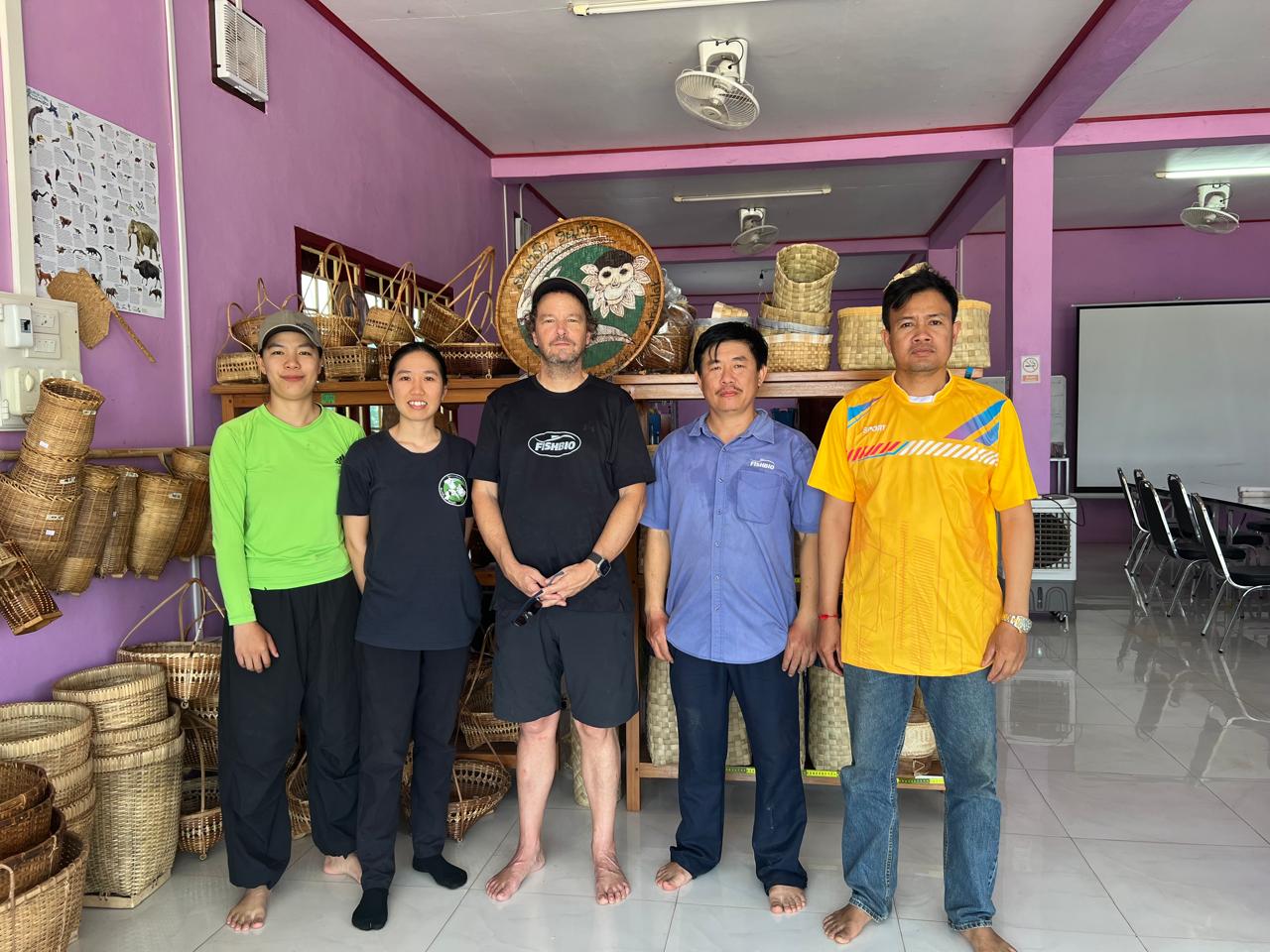
FISHBIO and Association Anoulak representatives
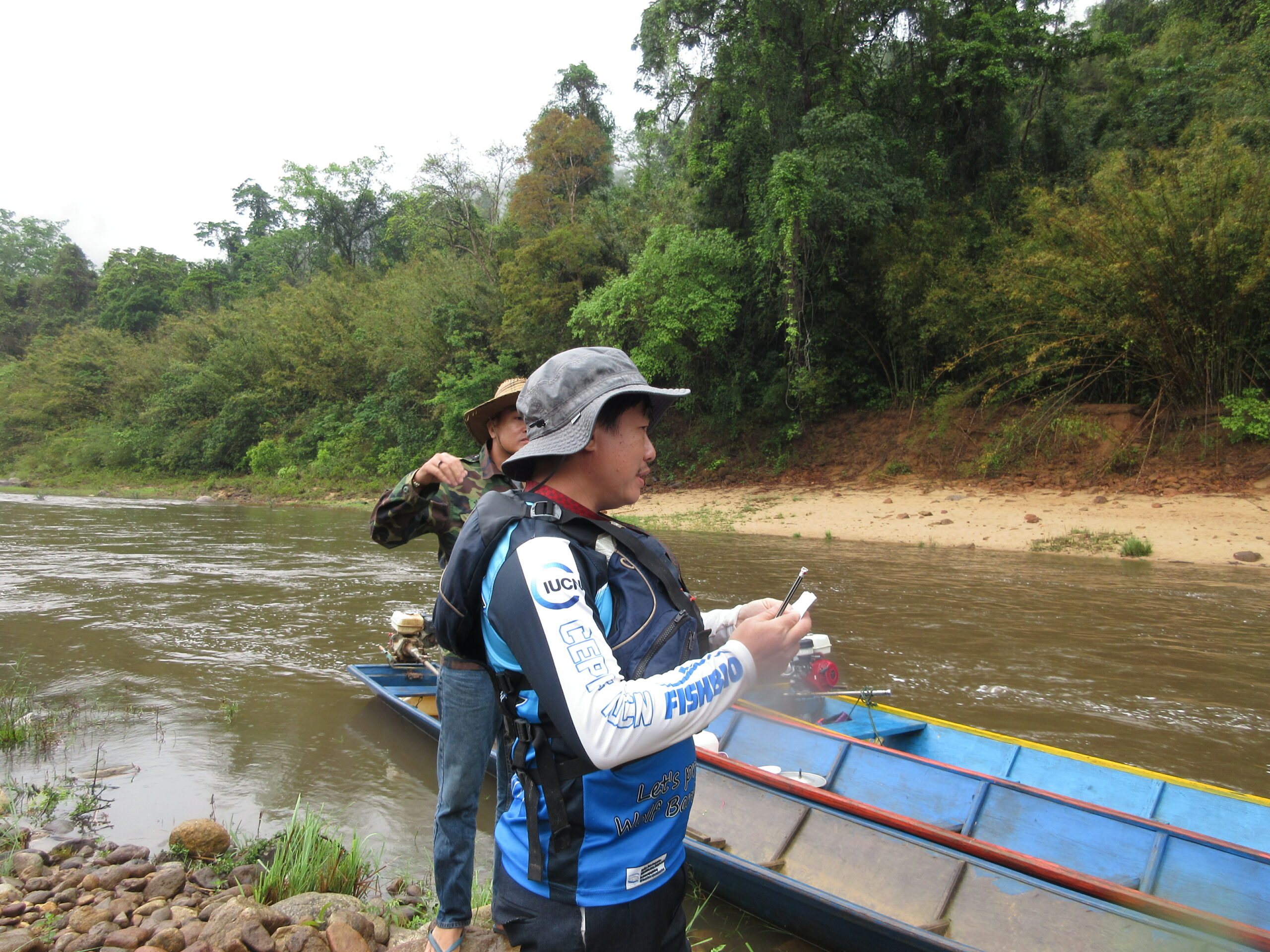
Mr. Sinsamouth, during practical training in the field
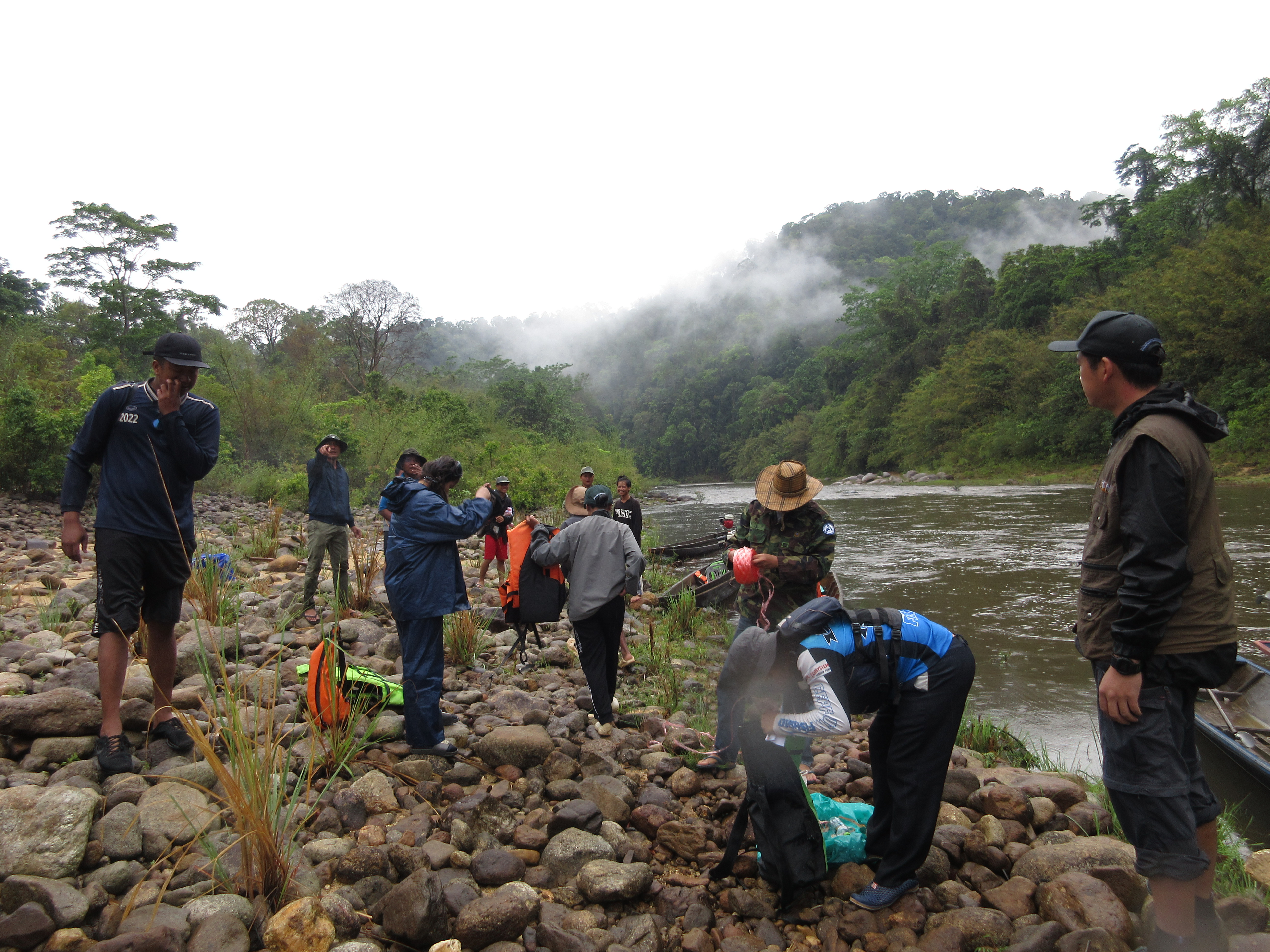
Practical training in the field
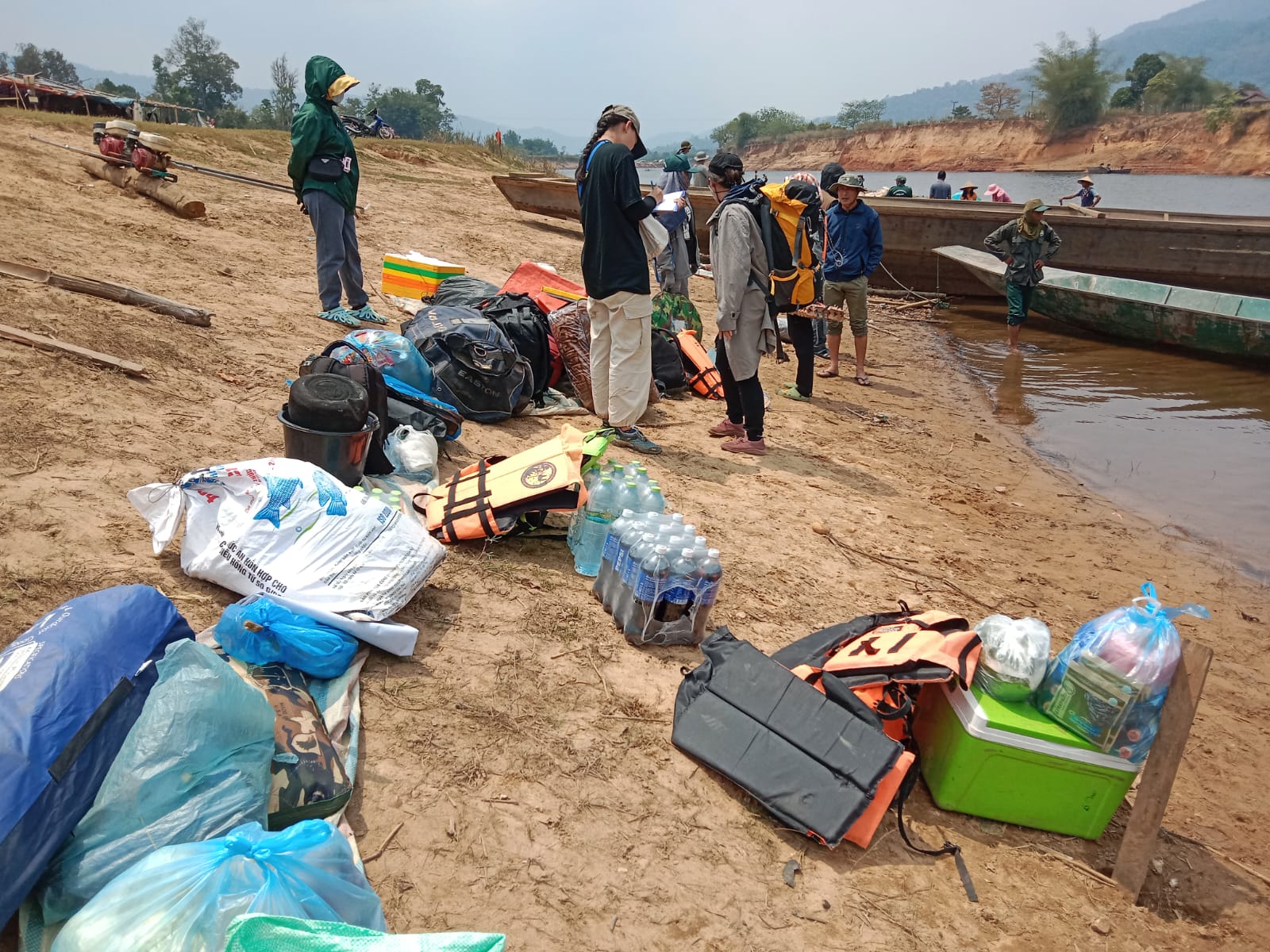
Practical training in the field
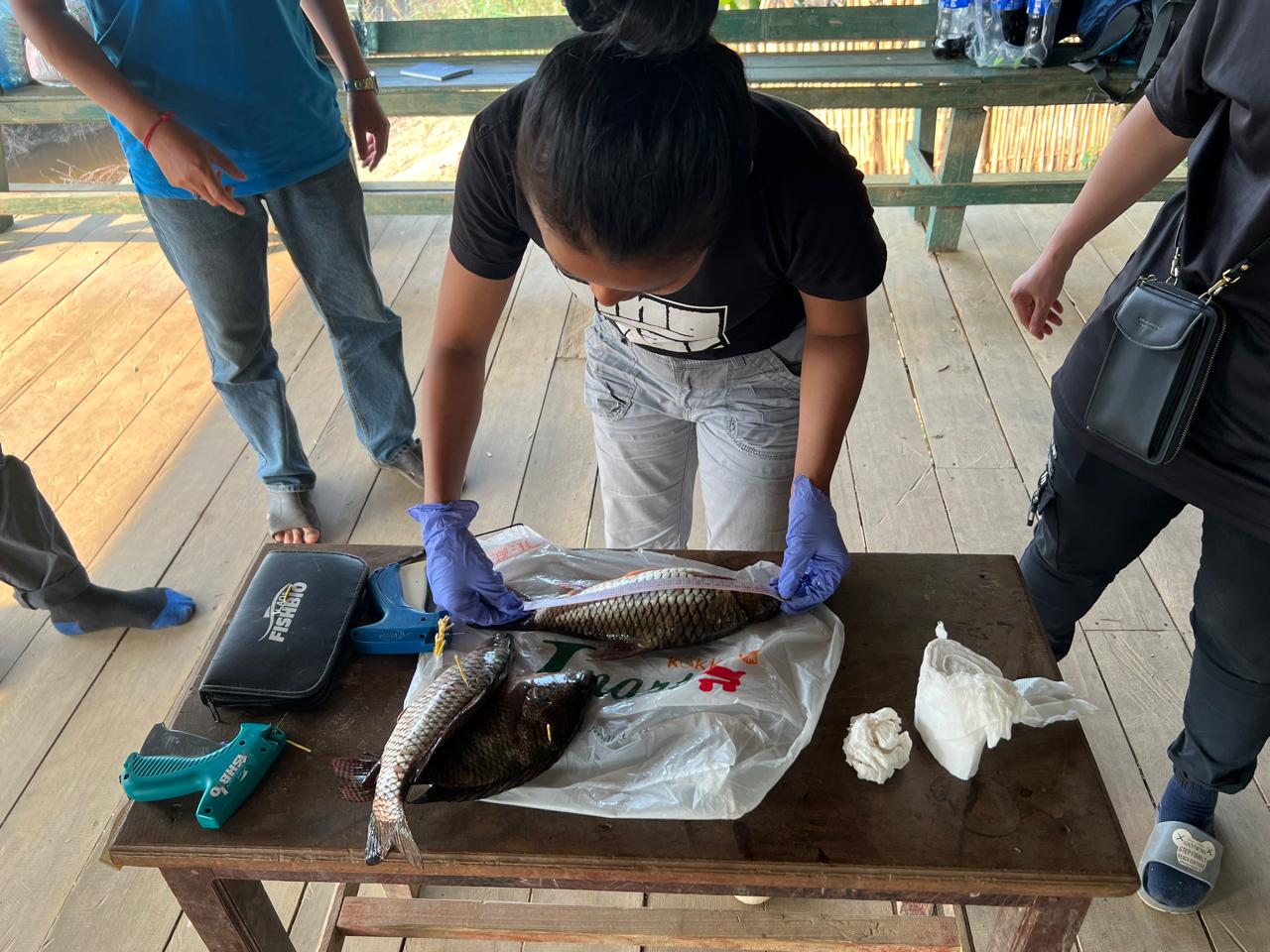
Practical training in the field including measuring and tagging fish (this training was done on fish bought in the food market)
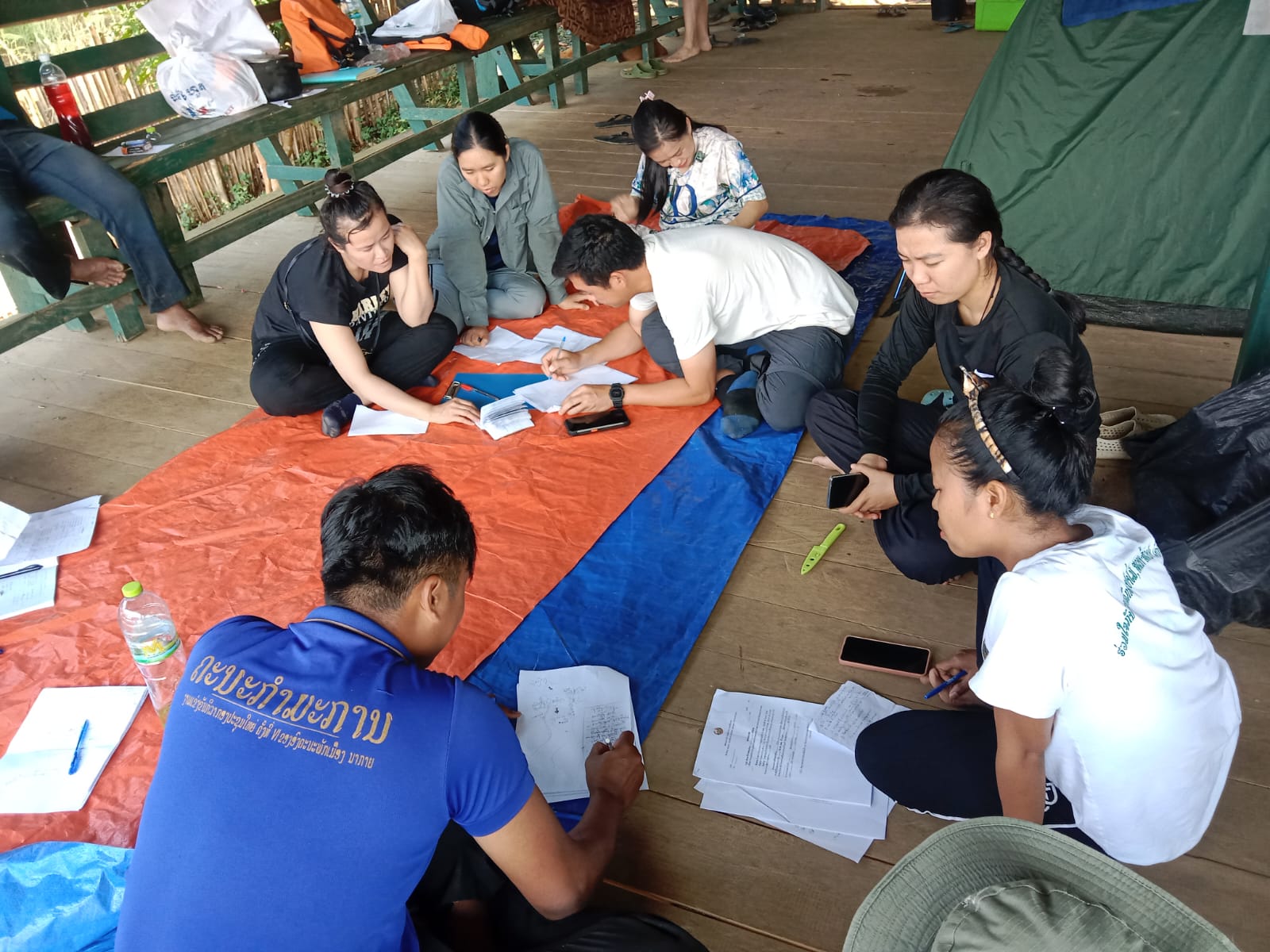
Practical training in the field
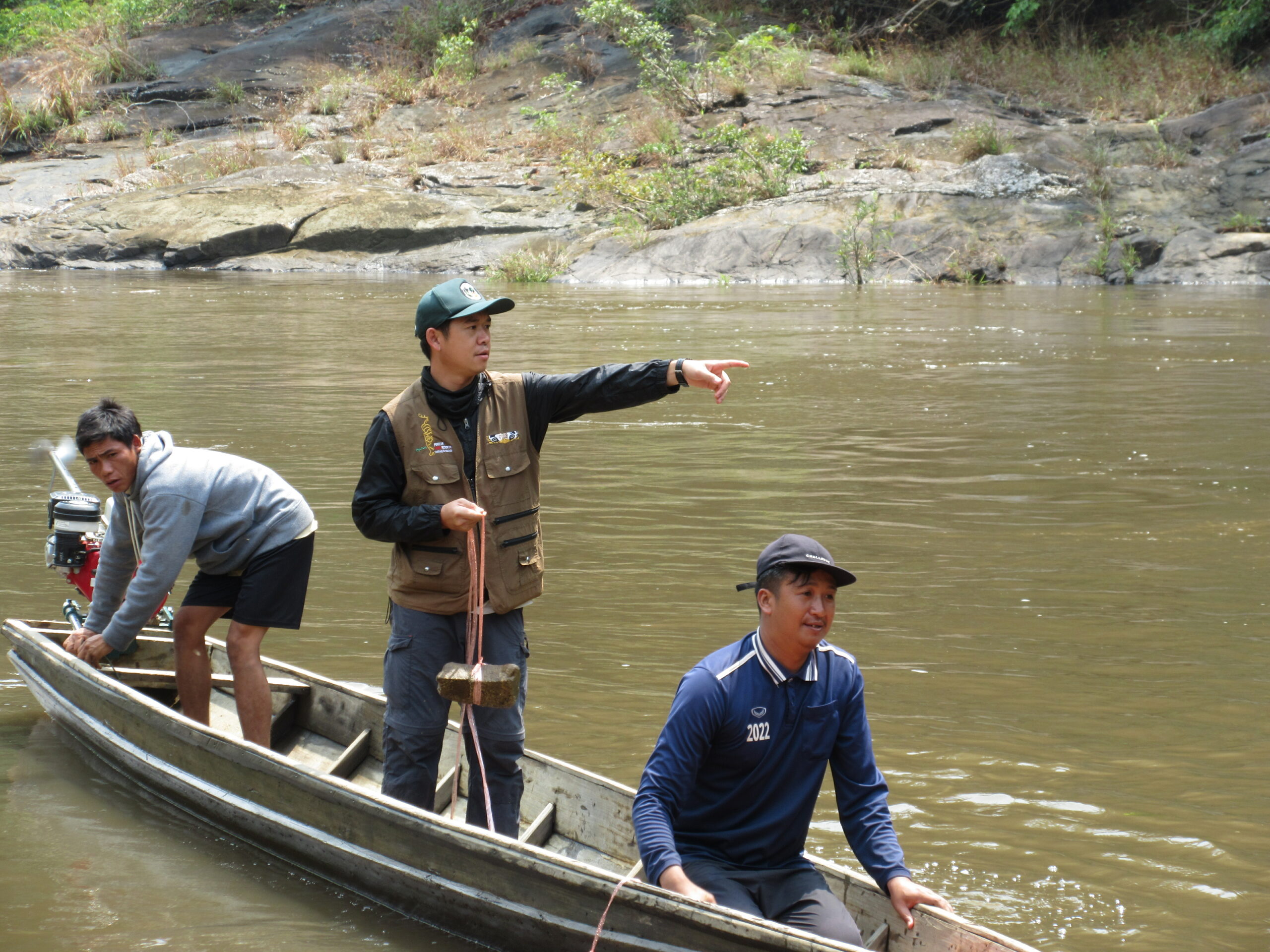
Mr. Sisongkham, during the practical training in the field
